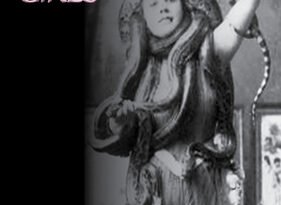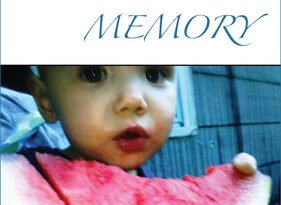Awake Through Dreams
By Celia Drill
($17.95, (7” X 10”) Paperback, 92 pages)![]()
Winner of the 2017 Vernice Quebodeaux “Pathways” Poetry Prize for Women
INTRODUCTION
So there I was, minding my own business, sitting quietly alone in my darkened room. I must have been lost in my own meditative revelry, as I always am, contemplating an ethereal vision, as I always do. I didn’t hear the light footfalls coming down the hallway, so I had no warning until the doorknob started to turn. And then suddenly there was Kate, dressed in a new robe, framed by the doorway with the lamplight falling behind her. I didn’t see a cast iron frying pan in her hand, but she had one arm behind her back, so I knew it was likely there. Even its unseen presence immediately held my attention.
“William,” she said, “You need to write an introduction for Celia Drill’s new book.”
“OK, darling. First thing tomorrow morning!”
Her voice fell an octave, and strengthened. “Swear me no oaths, and tomorrow me no tomorrows! Now!” I saw a dark curve behind her back: she’d brought the large skillet. I didn’t have a good answer. I turned towards my keyboard.
“Introductions are easy to write,” I said. “Usually, you just go through the text, find some good lines, sprinkle in a few thoughts, and you’re done. It’s as easy as baking a blueberry pie.”
“So why is this one difficult?” she asked, fingering the skillet’s handle.
“George Starbuck told me a good story once. It was a tale of two introductions, the best of his work, and the worst. He was writing an introduction for one of Kinnell’s books, I think it was The Book of Nightmares, and he wanted to tell everyone how brilliant it was, how they had to sit down with the book this instant, and read it through, two or three times, how it would change their lives.”
“How’d that go for him?”
“He said it was the worst introduction he ever wrote. On the other hand, he did one for Anthony Hecht, around the same time. He didn’t feel quite the same way about Hecht, so he just wrote a straight, just the facts, description. Looking back, he said it was the best introduction he ever did.”
“Ok, William, so do that.”
“It’s not that easy. Celia’s brilliant. There’s nothing like her work in all of American poetry. The best analogue for what she writes may be Rimbaud. His Illuminations remind me of her work.”
“Remind you of her work?”
“Yes. All art is eternally present, and in all languages: ‘O terrible frisson des amours novices sur le sol sanglant et par l’hydrogène clarteux ! trouvez Hortense.’ Seek out Hortense. Sometimes, reading her poems, I think her work is what Rimbaud wanted us to find.”
“William…”
“I know. But listen to this:
‘I confess this from my little house, shame box built on stones, poised at the crossroads of the four directions. Animals rush through, all galloping light. Healing. Transforming. In winter I felt the thin walls thicken: chrysalis. In deepest mediation, I have seen myself fly out…’
Or this:
‘My heart is a woman’s heart. Bite into a pomegranate, bloody with seeds, you will taste it.’
Anyone who can write like that has felt the breath of the Goddess!”
“Oh, William, you and the Muse!”
“Do not blaspheme her name! She gives a mantel to the wanderer, and Celia Drill wears that mantle with grace:
‘The poet in me will never stop walking uncharted paths.’
She almost sails on the wind:
‘I flew in dresses thin as leaves, a blur of autumn colors.’
And the things she sees and hears on her journey make the world seem alive with the kind of energy Hildegard spoke of:
‘The flowers have never stood so vivid, have never emanated sweeter spice, nor spoken in such bold voices…’
I think now Hildegard may be a second correlation:
‘I am only fire passing through this world.’
It’s so close to Hildegard’s veriditas, her living light.”
“Oh, William, you and your mysticism. Maybe you should write about her prosody instead?”
“That’s just as hard. I’ve spent a lifetime thinking about what poetry is, and how to write it. But even now, her work is still changing my ideas. Try this:
‘I placed upon my wall a painting of a door into another home.’
That’s exactly it, isn’t it: a door into a realm we can only sense. An eternal realm we know must be there. It’s what James Wright mentioned:
‘At the touch of my hand, the air fills with delicate creatures from the other world.’
And the roses Celia Drill writes of are the gateways to that other world:
‘It’s good to remember
there’s beauty behind the veil, and to know
I could reach through, touch the petals, bring the
wild things home.’”
“Perhaps you’re going too far, William.”
“Maybe. Or perhaps not far enough. Reading her lines, I can almost feel my own heart as it ‘bursts into petals.’ Listen to this:
‘The moon trills back, flute. Every night of my life, we have sung to each other. Our song is always the same. I intone be safe. I light a candle for you. She lilts Starlight encircles me like angels. I will live forever.’
This is what makes poems eternal, and she knows it:
‘I will never stop singing with the moon.’”
“Wait a minute, William. I thought you were talking about a theory of poetry?”
“I am. Think back to your History of Art classes. Forget, for a moment, all those images of magical beings on the walls of the caves near Lascaux. I’m interested in the image of a hand. You remember the one: the artist clearly dipped his hand in red ochre and pressed it against the cave wall. All my professors said the same thing: it was a kind of ‘Kilroy was here’ act. But I think I agree with those who said otherwise. Maybe the image was a material record of visionary experience. And we, who come along later, can place our own hand against the image and share that experience. I think that’s how I see her poems: reading them, we can share her experience, and touch that other world she knows so closely:
‘Much like the heart, the poem can open its doors. / All the letters fall through. Rivulets of sound stream away.’”
“You have to finish now, William. Do you have a favorite passage?”
“It’s so hard to choose. Which is your favorite flower in the garden? Will your favorite today be the same tomorrow? But let’s try this:
‘Stars floating in clouds like breath of white lilac. Like ghosts appearing when all are asleep: they are hungry; they crave earth’s music. They want to bed down like rain does in sand, in soil, in the body. In me, empty of all but song and stars.’
Or this:
‘Within me: starlight drunk while walking night’s roads.’
Or this:
‘I am always listening with the unfurling rose of my inner ear.’”
“These are the things poets truly know. These are the journeys they actually take. These are the things they deeply hear. And Celia Drill is a true poet.”
“William, Michael Linnard just wrote to say Celia’s been awarded the Vernice Quebodeaux ‘Pathways’ Poetry Prize for Women 2017.”
“That’s wonderful news! It’s richly deserved. And perhaps this means even more people will hear about her work. Everyone really should sit down with this book right now, and read it through, two or three times. It might just change their lives.”
W.F. Lantry
Washington, D.C. 2017




